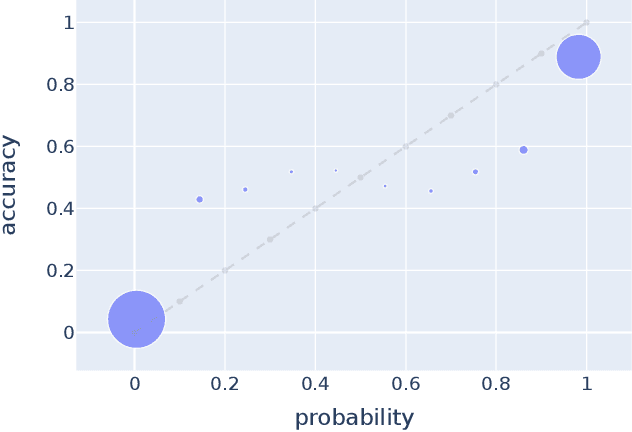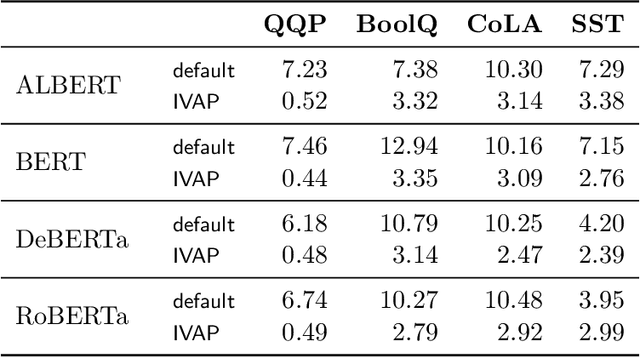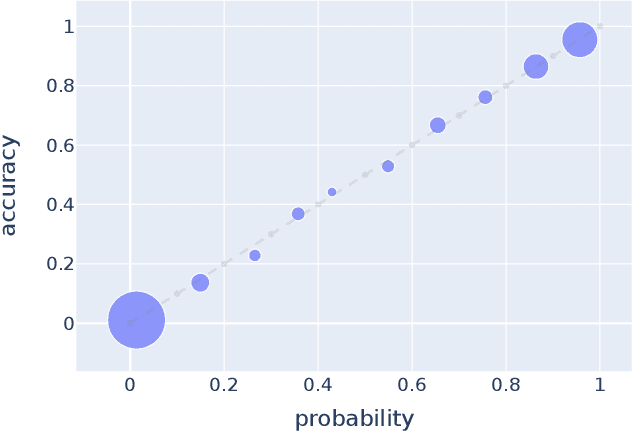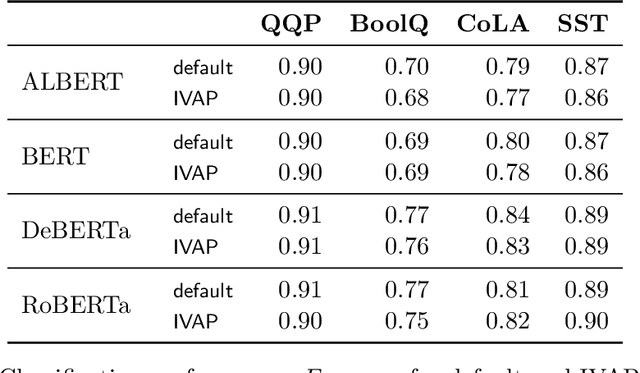Patrizio Giovannotti
Calibrated Large Language Models for Binary Question Answering
Jul 01, 2024Abstract:Quantifying the uncertainty of predictions made by large language models (LLMs) in binary text classification tasks remains a challenge. Calibration, in the context of LLMs, refers to the alignment between the model's predicted probabilities and the actual correctness of its predictions. A well-calibrated model should produce probabilities that accurately reflect the likelihood of its predictions being correct. We propose a novel approach that utilizes the inductive Venn--Abers predictor (IVAP) to calibrate the probabilities associated with the output tokens corresponding to the binary labels. Our experiments on the BoolQ dataset using the Llama 2 model demonstrate that IVAP consistently outperforms the commonly used temperature scaling method for various label token choices, achieving well-calibrated probabilities while maintaining high predictive quality. Our findings contribute to the understanding of calibration techniques for LLMs and provide a practical solution for obtaining reliable uncertainty estimates in binary question answering tasks, enhancing the interpretability and trustworthiness of LLM predictions.
Evaluating Machine Translation Quality with Conformal Predictive Distributions
Jun 02, 2023Abstract:This paper presents a new approach for assessing uncertainty in machine translation by simultaneously evaluating translation quality and providing a reliable confidence score. Our approach utilizes conformal predictive distributions to produce prediction intervals with guaranteed coverage, meaning that for any given significance level $\epsilon$, we can expect the true quality score of a translation to fall out of the interval at a rate of $1-\epsilon$. In this paper, we demonstrate how our method outperforms a simple, but effective baseline on six different language pairs in terms of coverage and sharpness. Furthermore, we validate that our approach requires the data exchangeability assumption to hold for optimal performance.
Calibration of Natural Language Understanding Models with Venn--ABERS Predictors
May 21, 2022



Abstract:Transformers, currently the state-of-the-art in natural language understanding (NLU) tasks, are prone to generate uncalibrated predictions or extreme probabilities, making the process of taking different decisions based on their output relatively difficult. In this paper we propose to build several inductive Venn--ABERS predictors (IVAP), which are guaranteed to be well calibrated under minimal assumptions, based on a selection of pre-trained transformers. We test their performance over a set of diverse NLU tasks and show that they are capable of producing well-calibrated probabilistic predictions that are uniformly spread over the [0,1] interval -- all while retaining the original model's predictive accuracy.
 Add to Chrome
Add to Chrome Add to Firefox
Add to Firefox Add to Edge
Add to Edge